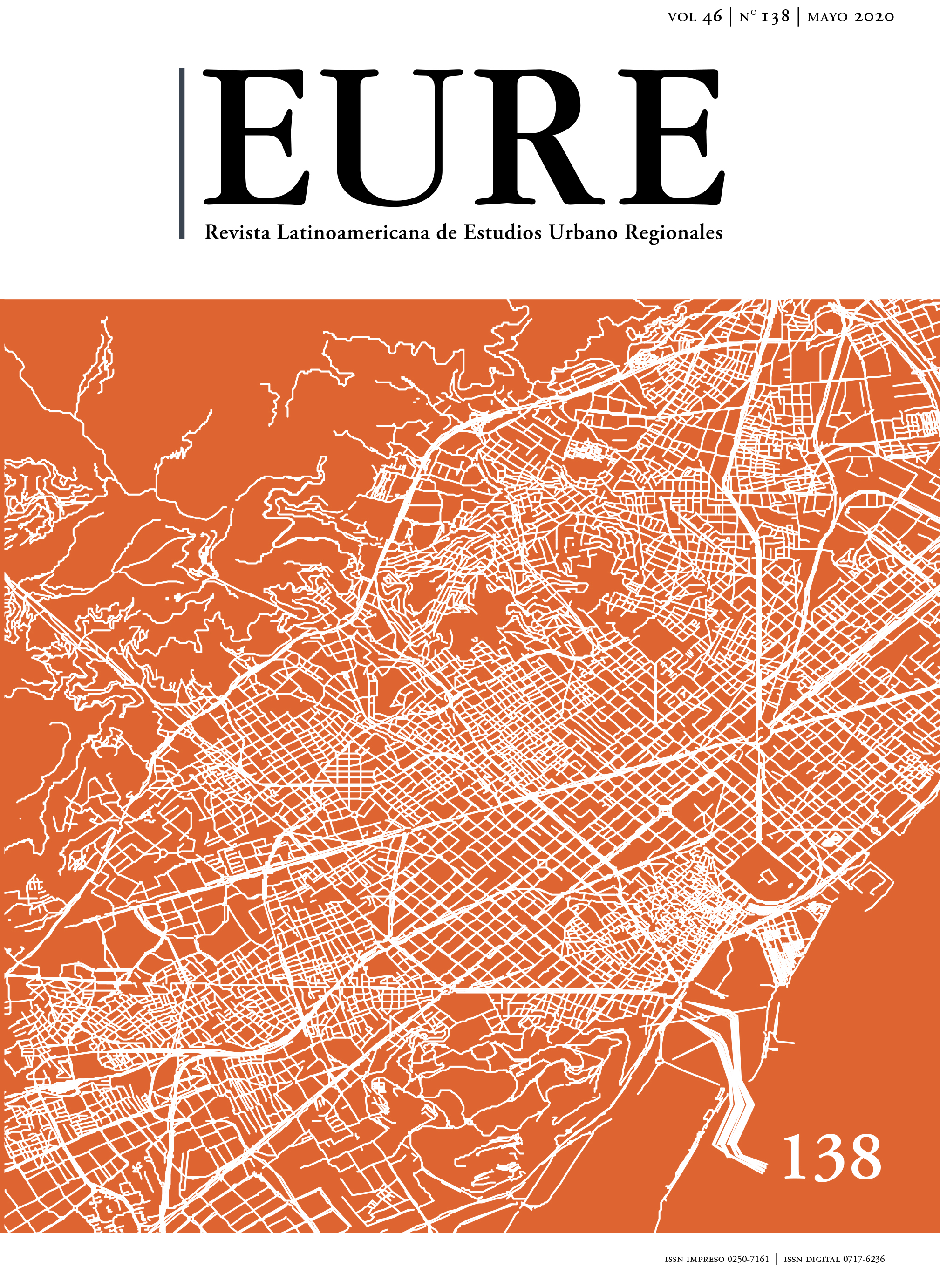La dimensión socioespacial del capital social. Análisis del capital social vecinal y la eficacia colectiva en ocho conjuntos de vivienda social en Chile
DOI:
https://doi.org/10.4067/S0250-71612020000200071Palabras clave:
vivienda, integración social, segregaciónResumen
Siguiendo el enfoque de la "espacialización" del capital social, este artículo analiza la vecindad territorial como ámbito socioespacial en el que se generan y reproducen el capital social vecinal y la eficacia colectiva. A partir del análisis de los datos de una encuesta aplicada en ocho conjuntos de vivienda social ubicados en tres regiones de Chile, esta investigación muestra la existencia de bajos niveles de confianza vecinal, el predominio de relaciones de apoyo circunstancial, y la escasez de prácticas asociativas y de cooperación. Las variables que tienen un efecto significativo sobre el capital social vecinal y la eficacia colectiva son las condiciones de acceso a la vivienda (asignatario original y propietario) y la percepción de violencia y delincuencia en el barrio. En contrapartida, la segregación socioeconómica no tiene un efecto directo sobre el capital social a nivel de los barrios analizados.
Descargas
Publicado
Cómo citar
Número
Sección
Licencia
Derechos de autor 2020 Revista EURE - Revista de Estudios Urbano Regionales

Esta obra está bajo una licencia internacional Creative Commons Atribución 4.0.
Al momento de aceptar la publicación de sus artículos, los autores deberán formalizar la cesión de derechos de autor a EURE, según las condiciones establecidas por la Revista.
Ésta establece que el autor autoriza a EURE de manera gratuita, exclusiva e ilimitada a reproducir, editar, publicar, distribuir, publicitar, comercializar y traducir el artículo, a cualquier soporte conocido o por conocer y desarrollar.
Del mismo modo, los autores aseguran que el artículo propuesto es original, no publicado y no propuesto para tal fin a otro medio de difusión.


